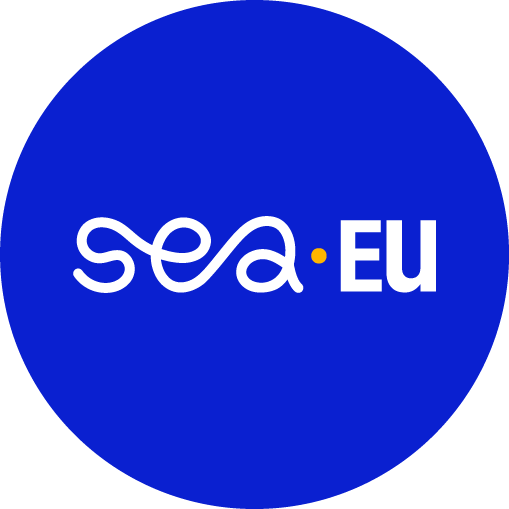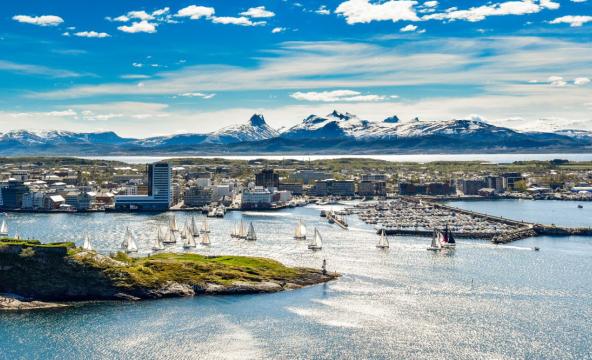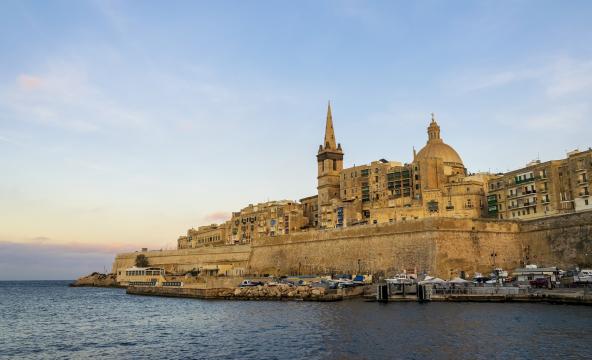European University of the Seas (SEA-EU)
SEA-EU is a European university alliance that aims to strengthen cooperation in education and research across national borders in Europe. Motto: «Living sustainably, by, from and with the sea».

SEA-EU was started in 2019 with six European universities. In 2022, three new universities, including Nord University, joined the alliance.
The SEA-EU alliance aims to:
The alliance will strengthen research and education in coastal areas, and promote key areas of cooperation such as internationalisation, sustainability, digital transformation, openness, and democracy.
The aim is to become an international role model for interaction within the EU and increasing research activity.
The common denominator for all the universities in the alliance is that they are located by the sea and their high level of expertise in marine and maritime disciplines. Nord University's connection to the High North is important for the university's place in the alliance.
The activities of the alliance are not limited to research and teaching. For example, the alliance seeks to meet a European standard for a "healthy campus", setting a standard for how the universities will facilitate health-promoting measures in physical activity, nutrition, and mental health. The alliance also promotes inclusion, diversity, and gender equality.
For Nord University the SEA-EU alliance is a unique opportunity to further develop the university, and to make Nord University a more visible and recognised international university.

Newsletter
About SEA-EU
The SEA-EU alliance consists of nine universities:
- Nord University
- University of Gdansk (Poland)
- Kiel University (Germany)
- University of Western Brittany (Brest - France)
- University of Split (Croatia)
- Parthenope University of Naples (Italy)
- University of Algarve (Portugal)
- University of Cádiz (Spain) - coordinator
- University of Malta
Together, the alliance partners have more than 150,000 students and 18,000 employees who will benefit from the objectives that the alliance has set itself.
As a Nord student, you are a part of SEA-EU.
In SEA-EU we are among others promoting inclusive, digital, and green, interdisciplinary, and innovative learning pathways. Find out how you can benefit from all the activities, fundings, resources and courses that SEA-EU is offering.
You can also apply for Erasmus+ grants to go on student exchange to our partners in the alliance, find out how.
The goal is to create a multi-ethnic, multi-lingual, and interdisciplinary “inter-university" European University Campus. SEA-EU aims to strengthen knowledge transfer and promote social and environmental responsibility.
You are encouraged to establish collaboration with relevant partners within research, innovation, education, and other areas that contribute to development for the university and the work-packages in the SEA-EU alliance.
Funding
- Internal funding for Nord University's employees through the SEA-EU alliance: Seed funds (specific call twice a year – next deadline March 15th 2023).
- You can also apply for Erasmus+ grants to go on a staff exchange to our partners in the alliance.
As its partners, Nord University will collaborate with relevant stakeholders that will benefit from the alliance. This is in line with our goal to connect the university to the local communities and businesses.
Stakeholders can take part in activities within the alliance and apply for funding together with the partners in the alliance. In addition, they can receive students and act as research partners.
The SEA-EU alliance has in total 75 associated partners, including research centres, businesses, cities and province authorities, public entities, NGOs and non-profit organizations, international clusters of excellence and ports.
The associated partners of Nord University are:
The alliance works according to six Work Packages (WPs). Each of the partners in the alliance is responsible for at least one WP. In addition, the partners contribute to all the WPs for the alliance to achieve its common goals.
WP1 – Governance and management
- Align the short and long term objectives of the European University of the Seas and lead the design of the strategy to achieve legal personality.
- To carry out appropriate monitoring and reporting.
- Ensure quality assurance, ethics and data protection.
- Align and broaden the SEA-EU 2.0 agenda for educational, research and socio-economic engagement.
WP2 – Education and training
- Facilitate and increase the level of physical mobility.
- Promote inclusive, digital and green, interdisciplinary and innovative learning pathways.
- Enhance personalised curricula and credit pathways: development of micro- credentials with the SEA-EU quality label.
- Increase the offer of SEA-EU joint programmes.
- Consolidate SEA-EU as a diversified learning centre for lifelong learning.
- Develop a coherent legal framework, including automatic academic recognition of degrees.
WP3 – Research and Innovation
- Generate European added value through research collaborations at Master's level.
- Enhance the career prospects of early stage researchers within and outside academia.
- Strengthen the common SEA-EU research framework by facilitating and increasing access to joint resources and infrastructures.
WP4 – European Campus Life
- Promote Equity at the European Campus.
- Increase student participation through the Alliance.
- Digitalise SEA-EU.
- Make SEA-EU greener.
- Embrace European values as the hallmark of the SEA-EU.
- Promote multilingualism, foster language competence in English and establish a common SEA-EU language policy.
WP5 – Bridging the gap with society
- SEA-EU Building Bridges Initiative: Stronger Partnerships for Common Global Goals.
- Innovate in the regional understanding of what it means to be SEA-EU.
- Transform the SEA-EU Service-Learning Centre into the SEA-EU Society Hub.
WP6 – Dissemination and Impact
- Build a coherent, memorable and engaging identity, communication and impact strategy.
- Manage and implement a robust, transparent and effective communication and impact strategy.
- Implement common values and quality standards for science communication.
If you are wondering about something, please contact the project leader for SEA-EU at Nord Tove Holm (tove.holm@nord.no) and i will try my best to help.
Tove Holm
Senior Advisor
Department of Academic and Student Affairs
Office: Bodø, Administrasjonsbygg 3.ETG
Email: tove.holm@nord.no
Phone: +4775517366
Levi Gårseth-Nesbakk
Pro-Rector
Department of Academic and Student Affairs
Office: Bodø, Administrasjonsbygg 3.ETG
Email: levi.garseth-nesbakk@nord.no
Phone: +47 75 51 76 95






